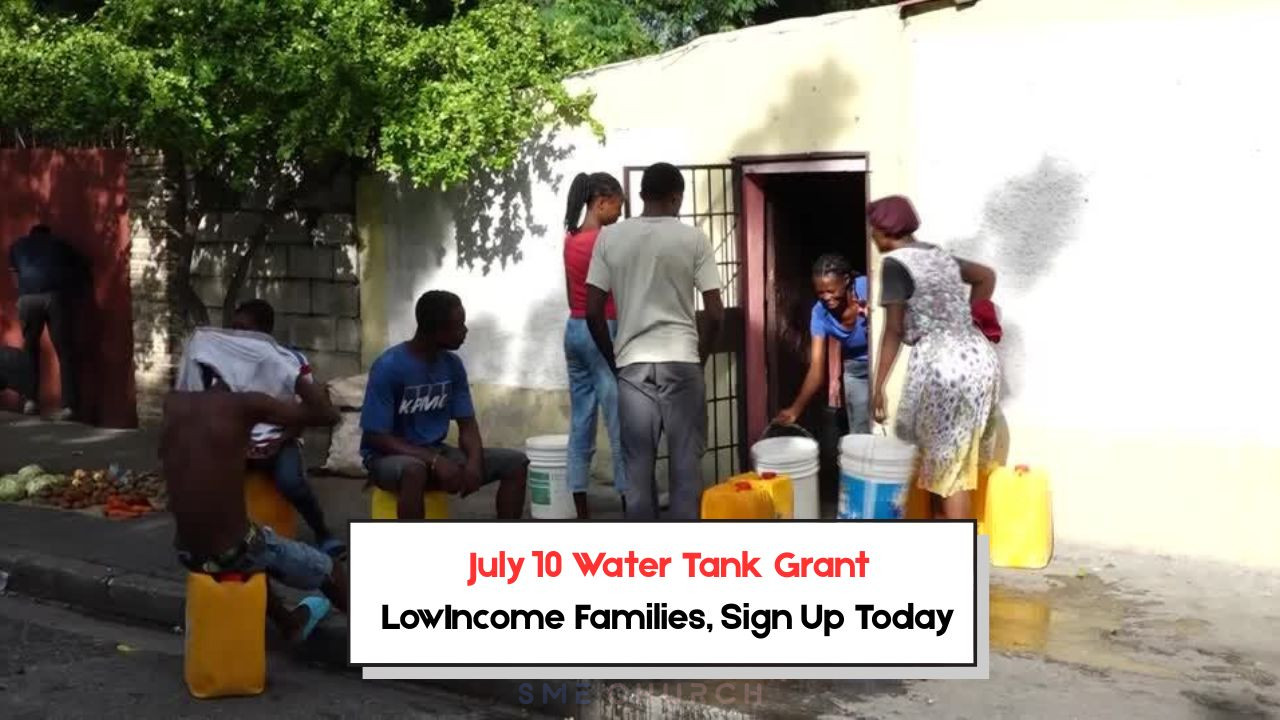Eastern Cape water cuts schedule: Residents of the Eastern Cape are preparing for the implementation of a new water management schedule starting on July 4. The region will experience daily water cuts lasting two hours, a measure introduced to manage the ongoing water scarcity affecting many South African provinces. This initiative follows a series of discussions and planning sessions by local municipalities aiming to ensure an equitable distribution of water during these challenging times. As the Eastern Cape gears up for these adjustments, understanding the implications of this schedule and preparing adequately will be crucial for residents and businesses alike.
Understanding the Eastern Cape’s Water Management Strategy
The decision to implement a water schedule in the Eastern Cape has been met with both concern and understanding from local communities. This strategy is designed to conserve water resources while ensuring that all residents have access to necessary supplies. The ongoing drought conditions have prompted authorities to take such measures as a precaution to prevent more severe water shortages in the near future. The water cuts will occur daily, and residents are encouraged to plan their water usage accordingly to minimize the impact on their daily routines.
- Plan daily activities around the scheduled water cuts.
- Ensure water storage solutions are in place, like water tanks or containers.
- Stay informed about any changes to the schedule via local news outlets.
- Consider water-saving appliances and fixtures to reduce overall consumption.
- Engage with community initiatives to support water conservation efforts.
How the Daily Water Cuts Will Affect Residents
The two-hour daily water cuts are expected to affect various aspects of daily life in the Eastern Cape. Residents may need to adjust their water usage habits, plan showers and cooking around the cuts, and ensure they have sufficient water stored for essential uses. Businesses, particularly those in the hospitality and service industries, will need to adapt their operations to accommodate the water schedule. Schools and educational institutions will also have to implement measures to ensure students and staff have access to water throughout the day.
| Time | Area | Water Cut Duration |
|---|---|---|
| 6:00 AM | Port Elizabeth | 2 hours |
| 8:00 AM | East London | 2 hours |
| 10:00 AM | Uitenhage | 2 hours |
| 12:00 PM | Queenstown | 2 hours |
| 2:00 PM | Mthatha | 2 hours |
| 4:00 PM | Grahamstown | 2 hours |
| 6:00 PM | Aliwal North | 2 hours |
Preparing for Water Cuts: Essential Tips for Households
Preparation is key to managing the impact of the water cuts. Households in the Eastern Cape are advised to take proactive steps to ensure they can maintain a comfortable standard of living during the scheduled disruptions. This includes investing in water storage solutions like rainwater tanks, prioritizing essential water use, and reducing waste. Families should also consider scheduling high water usage activities, such as laundry and dishwashing, during times when water is available. Being informed about the day’s schedule will help in planning accordingly.
- Install water-efficient showerheads and taps to reduce usage.
- Collect and store rainwater for gardening and other non-potable uses.
- Repair leaks promptly to prevent unnecessary water loss.
- Educate family members about the importance of water conservation.
- Stay updated with local news for any changes in the water schedule.
Businesses and Community Response to Water Cuts
Businesses across the Eastern Cape are also affected by the water cuts, with many having to revise their operations to accommodate the new schedule. Restaurants and cafes might need to adjust their opening hours or menu offerings, while manufacturers could see changes in production timelines. Community response has been largely supportive, with local groups organizing workshops and seminars to educate residents on water-saving techniques. Many businesses are also looking at long-term solutions, such as investing in water recycling systems, to mitigate the impact of future shortages.
- Implement water-efficient technologies in business operations.
- Engage with local water conservation initiatives.
- Communicate clearly with customers about any changes in service.
- Explore partnerships with other businesses to share resources.
- Consider alternative water sources for critical operations.
Long-Term Solutions for Water Conservation in the Eastern Cape
While the immediate focus is on managing the current water cuts, long-term solutions are crucial for sustainability in the Eastern Cape. Authorities and communities alike are exploring various strategies to address the region’s water challenges. This includes investing in infrastructure improvements, enhancing water recycling facilities, and promoting water-wise gardening practices. Education campaigns are also being launched to encourage a culture of conservation among residents, fostering an understanding of the broader environmental context and the importance of preserving water resources for future generations.
- Upgrade municipal water infrastructure to reduce leaks and losses.
- Promote the use of indigenous plants that require less water.
- Implement stricter water usage regulations during drought periods.
- Encourage businesses to adopt water-saving technologies.
- Support research into alternative water sources and technologies.
FAQ Section: Water Cuts in the Eastern Cape
Why are the water cuts being implemented?
Water cuts are being implemented to manage limited water resources due to prolonged drought conditions in the region.
How long will the water cuts last?
The current schedule is set for daily two-hour water cuts, but the duration depends on weather conditions and water availability.
What times will the water cuts occur?
The schedule varies by area, with specific times announced by local municipalities.
How can residents prepare for these water cuts?
Residents should store water, plan their usage, and invest in water-saving devices to minimize the impact of the cuts.
Are there any exemptions from the water cuts?
Certain essential services and facilities, like hospitals, may receive exemptions to ensure continuous operation.








